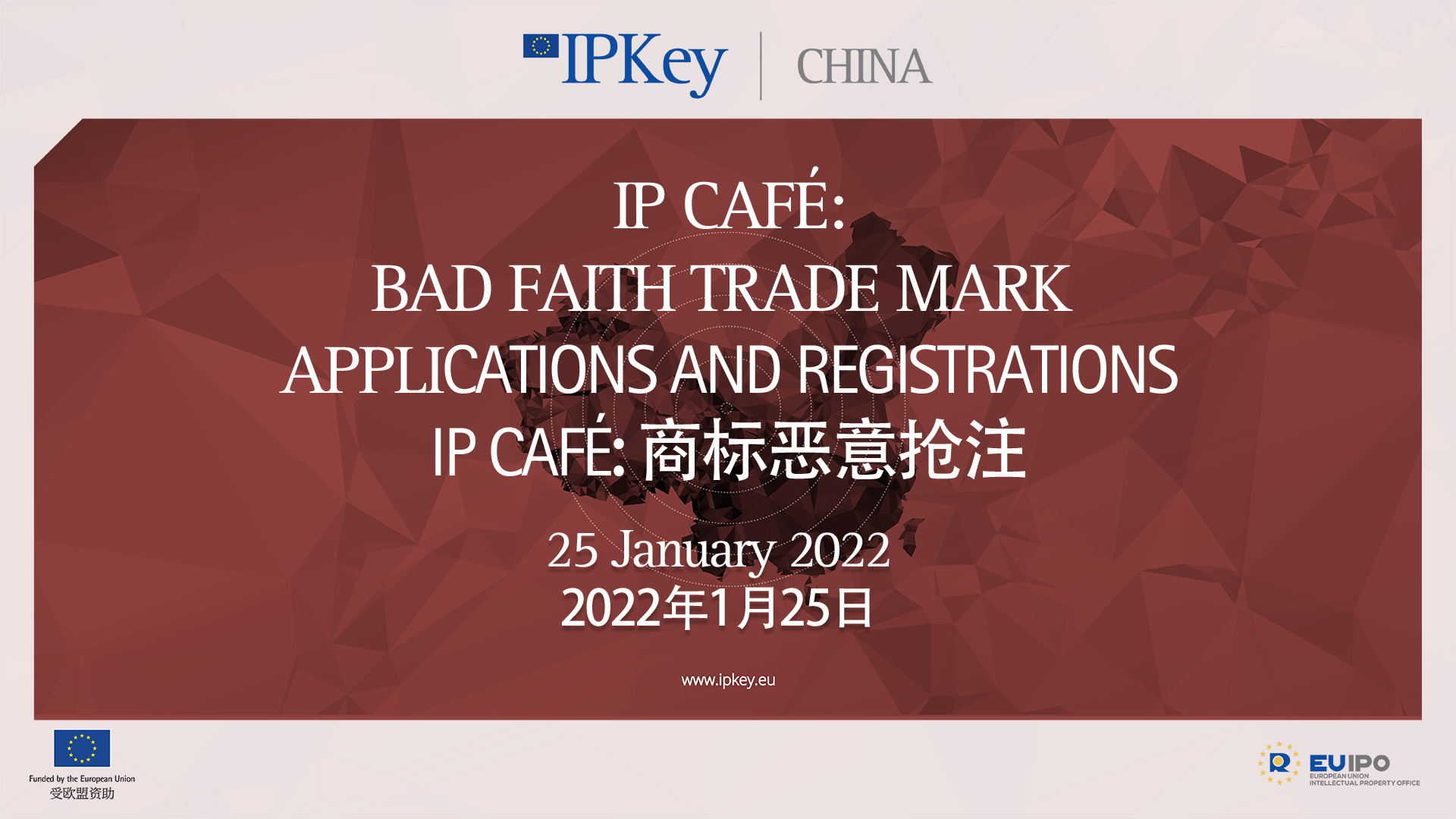IP Café on Bad Faith Trade Mark Applications and Registrations
IP Key China, in partnership with the Beijing Sunshine Intellectual Property and Legal Department Foundation (SSIP), and supported by the EU Delegation to China, organised the IP Café on Bad Faith Trade Mark Applications and Registrations on 25 January 2022. IP experts from academia, government agencies, industrial associations and law firms from the EU and China exchanged views, ideas and practices. The topics covered were determining pre-emptive registration in bad faith and the burden of proof required to show bad faith.
Roundtable discussion 1: the SSIP speaker introduced the development and trends of the Chinese trade mark system, from application to registration, taking into account the system introduced by the latest Trade Mark Law revision. Identification of bad faith was mostly based on subjective judgement. The expert from Wanhuida Law Firm shared a few trade mark cases to prove the difficulties in identifying bad faith trade mark applications in China, particularly for SMEs. The speaker from Long’an Law Firm made suggestions on how to deal with pre-emptive registration in bad faith under the current Chinese legal system from the perspectives of the Anti-Unfair Competition Law and judicial interpretations on the conflict between registered trade marks, trade names and prior rights.
Roundtable discussion 2: the IP expert from HFG Law Firm showed the difficulties facing EU rights holders in China to carry the burden of proof due to the differences between the EU and Chinese trade mark systems and the financial burden for the SMEs. The speaker from Tsinghua University illustrated the categories of bad faith trade mark registrations, the shift towards registration in bad faith by the Chinese courts and shared a practical case on how a Spanish rights holder managed the burden of proof and received a favourable judgement from a Chinese court[EN41] . The speaker from the EUIPO shared EU practices and cases related to bad faith registrations and the burden of proof in accordance with general principles.
During the Q&A sessions, there were discussions on other practical issues, such as how to tackle conflicts between using public resources and enforcing trade mark rights, how EU SMEs enforce their rights when facing bad faith applications from third parties, etc.
IP Café, an important feature of the EU China IP Academic Network (EUCIPAN), allows open exchanges between EU and Chinese academics and IP stakeholders on practical IP issues that concern rights holders. It ensures better knowledge and understanding within the EU and China, thus allowing for greater awareness of the opportunities and challenges in developing an effective, fair and transparent IP system.
Agenda
Links:
- TMview
- IPR Chapter in the EUCCC position paper (2021-2022)
- Study on Chinese Trade Mark Law: Assessment of the impact of the reform of China’s trade mark law (to be uploaded)
